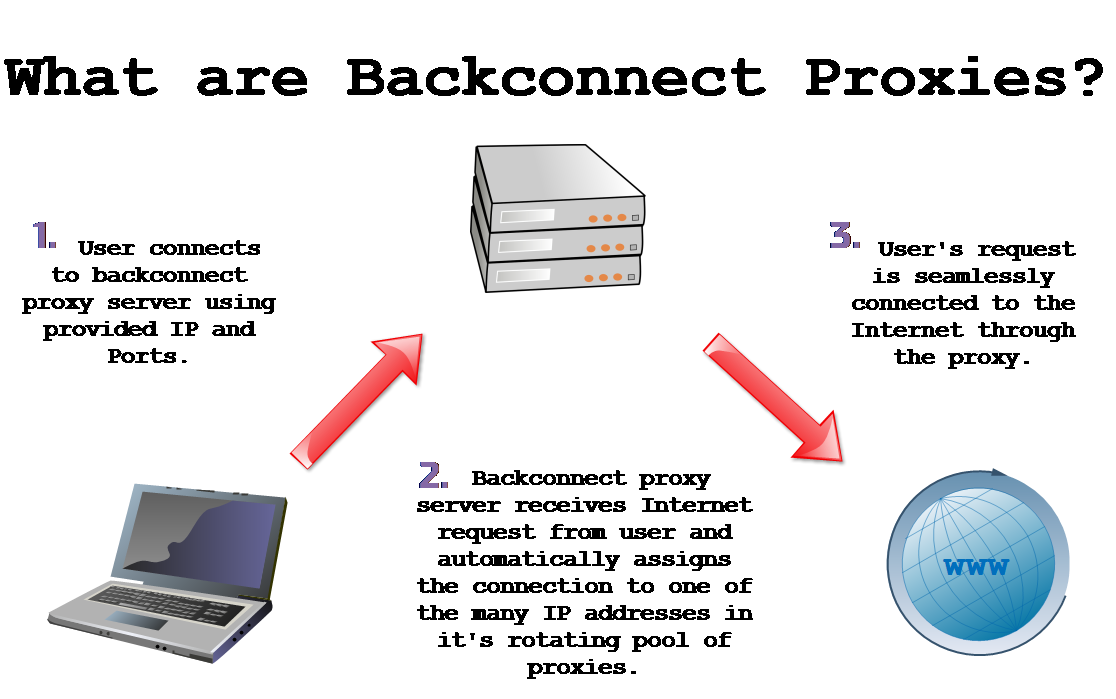Last Updated on October 11, 2019
To understand what a backconnect proxy is, also known as a rotating proxy, a basic understanding of regular proxies is needed first.
A regular proxy is basically a computer that relays a user’s internet requests across the web so that the user’s computer never directly connects to another computer across the web. Using a proxy effectively changes a user’s IP address to whatever the IP address is of the proxy being used.
When using a regular proxy, the IP address will always match whatever country the proxy server is operating in and the routing port of the proxy will always stay the same. When using many regular proxies from different locations, a user will have numerous proxies/IPs for each location.
How Rotating/Backconnect Proxies Differ from Regular Proxies.
Backconnect proxies are different because users generally only receive a single proxy or IP address to use. When a user connects to the backconnect proxy, the proxy server automatically assigns an IP to the request from it’s large rotating database of available proxy servers and the user’s request is tunneled through it.

The main variation between backconnect proxies is that some rotating backconnect proxy servers assign every single internet request routed through them a new IP address. The other type of rotating backconnect proxies only change internet request IP addresses according to a time interval, generally changing every 1, 3, 5 or even 10 minutes.
Rotating/Backconnect Proxy PROs
- Backconnect Proxies usually have more widespread locations than traditional proxies.
- Backconnect Proxies have far more available IP address when compared to traditional proxies offered.
- Backconnect Proxies can handle every kind of internet traffic and software like traditional proxies.
- Backconnect Proxies generally get blocked/banned less often because they run on residential IP addresses.
- Backconnect Proxies are easier to deal with when making hundreds or thousands of connections because there is just one IP address.
Rotating/Backconnect Proxy CONs
- Backconnect Proxies are more expensive than traditional proxies.
- Backconnect Proxies are generally slower than traditional proxies.
- Backconnect Proxies are a more difficult to use if a user only needs IPs from certain countries or regions.
Proxy Providers that Offer Rotating Backconnect Proxies:
[product_table search_on_click=”false” links=”image,name” cache=”true” columns=”image,name,price,att:authorization,att:ip-type,att:proxy-protocols,att:rotate-type” add_to_cart=”button” page_length=”false” search_box=”false” product_limit=”9999″ rows_per_page=”50″ category=”proxy-providers+backconnect-proxies”]To learn more about proxies in general, click here.





